The Quality Assurance Management Unit of the Federal University of Technology Akure ,FUTA organized a one-day training and workshop programme for early career academic in the University themed, Empowering Early Career Academics which was held at the T.I Francis Idibiye auditorium of the Federal University of Technology, Akure on Monday 23rd June,2025.
Addressing participants. The Vice Chancellor, Professor Adenike Oladiji, represented by the Deputy Vice Chancellor, Development, Professor Sunday Oluyamo, restated that the programme is a testament to FUTA’S unwavering commitment to nurturing the next generation of Scholars, researchers, and innovators. According to Professor Oladiji, “the academic landscape is constantly evolving, presenting both exciting opportunities and significant challenges urged the participants to balance rigorous research, effective teaching, administrative responsibilities and the pursuit of professional growth.”
The Vice Chancellor reaffirmed that FUTA is a rich pool of human resources for both academic and non-teaching staff from which any humble and discerning young member of staff can tap and move fast on their career journey.
Professor Oladiji said the program has been meticulously designed to address key areas vital for success and these areas include, effective grantsmanship, strategies for impactful research, innovative teaching methodologies and building strong academic profile. She urged the participants to make the most of the opportunity.
While commending the QAMU, she emphasized that quality assurance is a collective responsibility which requires all hands to be on deck to achieve the desired result.
Delivering the first lecture, a former Rector, Rufus Giwa polytechnic Owo Ondo State, professor Igbekele Ajibefun,in his lecture tattled ,Ethics and professionalism in Academics, defined ethic as moral principles that governs a person’s behavior or the conduct of an activity and professionalism as a set of standards that an individual is expected to adhere to in a workplace, usually in order to appear serious ,uniform, or respectful.
Professor Ajibefun stated that for an academic to be professional he or she must, impact knowledge, research which could be original or need driven and service or contribution to institutional and societal development. While stating the professional aspect he also stated that the ethical behavior of an academic must include, moral integrity, value, honor, responsibility, principle, trust, fairness, conscience and honesty. He said, “the University should be a system that encompasses valuating diverse perspectives, fostering open communication and upholding ethical standards within the academic community. He also included some important academic virtue to be pursuit for truth, freedom to pursue ideas, respect for knowledge, and a merit driven system. The erudite scholar said the declining value system in the society has penetrated and compromised the university system and the only way academic ethics and professionalism can be restored starts from the university itself through, Deans, HOD, s and Professors, Proprietors through the Federal and State governments and the private owners and society at large.”
According to him every stake holder in the University System is important for upholding the University culture and tradition
In a second lecture delivered by the Dean School of Computing, FUTA, Professor Kayode Alese, titled Teaching Methodologies in the 21st Century, said the 21st century has brought about significant transformation in the field of education which include, the integration of technology into teaching, tools such as learning management system, digital white boards, video conferencing platforms and interactive app are commonly used now. He highlighted the challenges in implementing modern methodologies to include, limited access to technology, lack of teacher training, resistance to change and disparities in student readiness.
He identified blended learning as a key methodology in the 21st century. According to Alese ,”it combines face to face teaching with online learning, offering flexibilities and personalized pace. Professor Alese said the components of blended learning include, online contents, videos, eBooks, simulations, face to face interactions, group discussions, lab sessions, online quizzes and instant feedback system.”
He stated that the benefits of blended learning include, enabling access to a vast range of resources, encourages self-paced learning, and also promotes continuous assessment and feedbacks. The Dean stated that information technology has become a foundation element in modern university teaching, from content delivery and student engagements to assessment and administration digital tools have empowered lecturers to be more innovative, efficient and responsive to learners needs. According to him as technology continues to evolve, ongoing investment in infrastructure, training and digital literacy will be essential to fully harness its potential in higher education.
In a third lecture titled Research and Scholarship; Exploring new frontiers, the Director, Centre for Research Development, Professor Keneth Alaneme, described the topic as a commitment to academic excellence and innovation. He said pioneering research and scholarship at the frontiers, exploring new frontiers through rigorous research and scholarship, charting new frontiers in research and academic excellence is all that’s required.
According to him, building a strong academic foundation, identifying a research interest or problem, seek mentorship, acquire research skills, engage in research projects, publish and present for academic purposes, apply for scholarship and grants, joint academic networks, maintain academic integrity and keep learning and innovating, will all help to attain a thorough research and scholarship, while exploring new frontiers.
The final paper delivered by the Director, QAMU, professor Salau, titled, procedures and best practices, said best practices include, process orientation, defect prevention, practice approach to all things and managerial tool. He said factors that determine best practices in education include, well maintained buildings, outstanding teachers, high moral values, excellent examination results, and a well-balanced curriculum.
Professor Salau said the vision of FUTA QAMU, is to become a center of excellence, in quality assurance for sustainable high standard, quality education and service delivery and to build an integrated quality culture through harmonized quality assurance mechanisms for sustainable high academic standard and standard delivery.
The director stated that the challenges of Academic quality assurance include limited resources, resistance to change, funding, infrastructure, personnel and other that may not be good driver for motivation.
He advised that Nigerian Universities should develop a culture of quality, where academic staff are aware of the importance of quality assurance and are committed to maintaining high quality academic programs for academic and non-teaching staff to ensure that they have the necessary skill and knowledge to deliver high-quality academic programs and services
In welcome address delivered earlier , Salau said maintaining quality service delivery is crucial for empowering early career academics to provide exceptional academic services at FUTA. He noted that as the Nation’s best University of Technology, the institutions success is rooted in its commitment to quality academic service delivery.






























































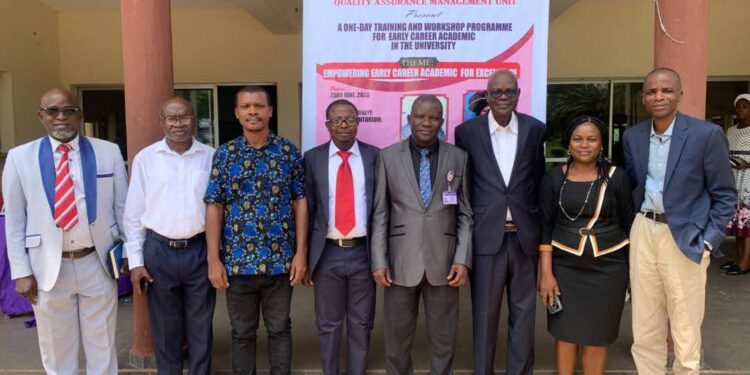




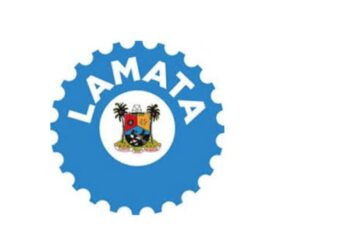
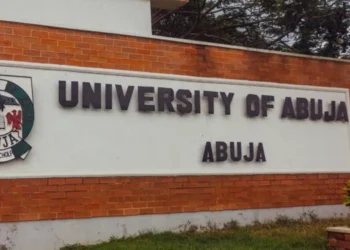

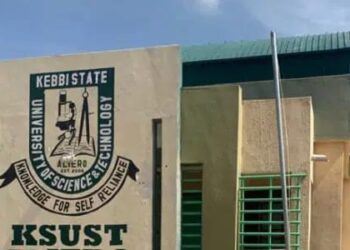
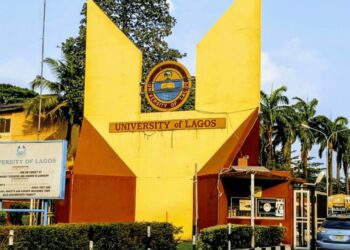











 EduTimes Africa, a product of Education Times Africa, is a magazine publication that aims to lend its support to close the yawning gap in Africa's educational development.
EduTimes Africa, a product of Education Times Africa, is a magazine publication that aims to lend its support to close the yawning gap in Africa's educational development.